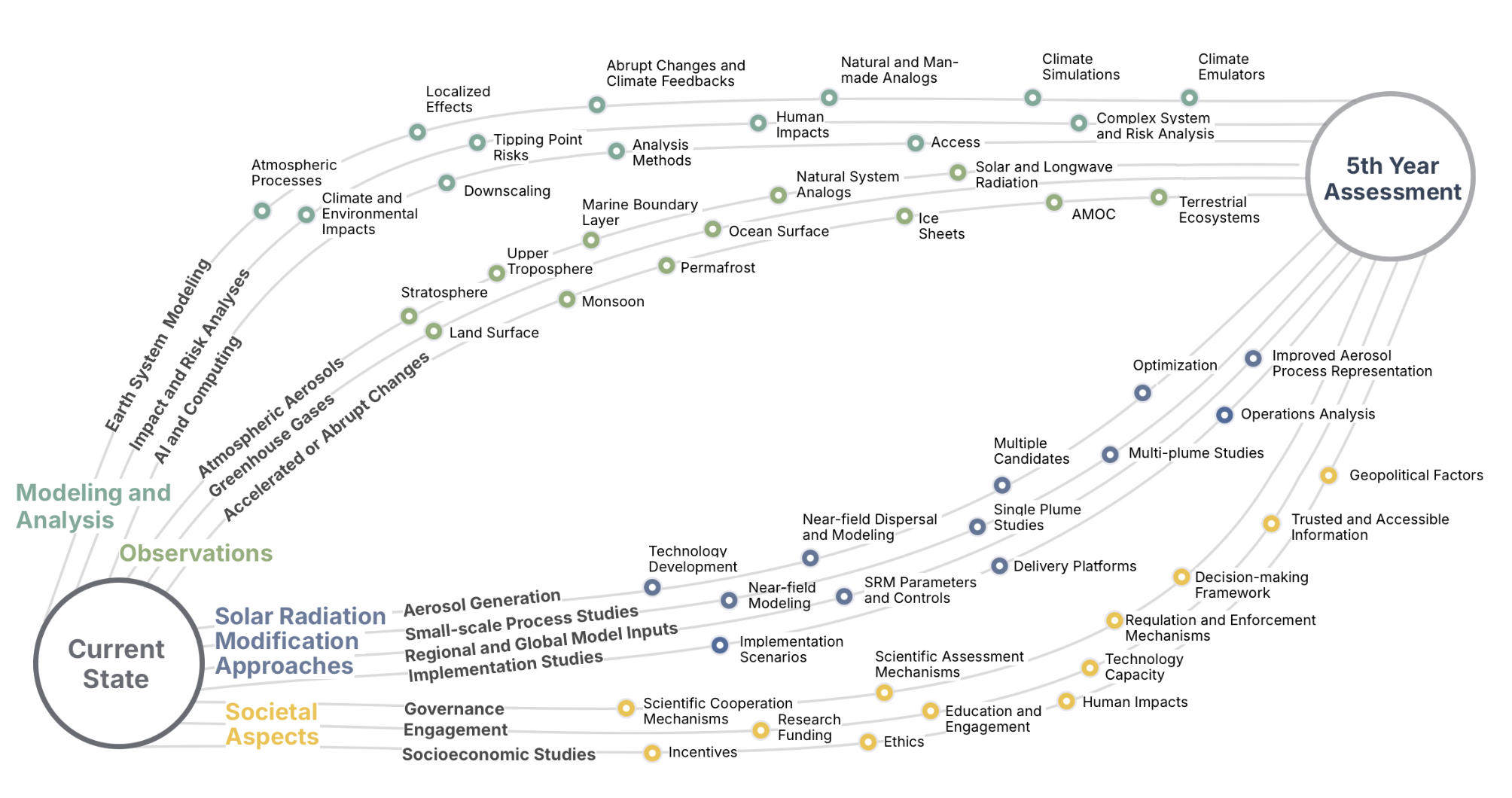
Insights
Featured

Atlantic Council Issue Brief: Accelerating Earth System Intervention Research to Improve Global Security
The world is currently experiencing unprecedented global temperatures and extreme weather events, with record heat waves and devastating storms. Last month, the world experienced the hottest days ever observed, with four days of record-breaking temperatures taking place in the span of just one week. Around the globe, climate-linked disasters are occurring more frequently, and scientists continue to publish research on the escalating risks of natural systems crossing major climate tipping points.
SilverLining Unveils Interactive Roadmap for Research and to Advance Understanding of Near-Term Climate Risk and Intervention. The 5-year digital roadmap includes ambitious improvements to climate observations and models and study of a portfolio of rapid interventions.
Rapid and effective reporting, regulation and enforcement for weather modification and climate intervention activities would be best achieved in a structure in which the National Oceanic and Atmospheric Administration (NOAA) provides research and analysis of weather and climate impacts in support of a program of registration, permitting and enforcement by the Environmental Protection Agency (EPA). To achieve this, NOAA should expand relevant research and, with EPA, collaborate in the design of relevant processes. Within this, to support critical research, small-scale emissive research studies should be supported and exempted from permitting requirements for impact-scale activities.
Marine cloud brightening (MCB) is a promising approach to reducing near-term climate impacts and risks by dispersing sea salt particles (aerosols) into low marine clouds to make them reflect slightly more sunlight back into space to cool the climate.



